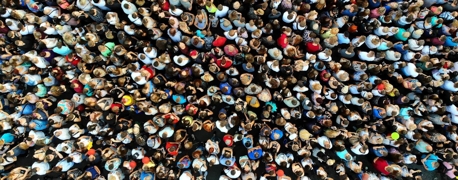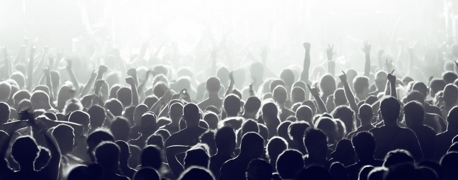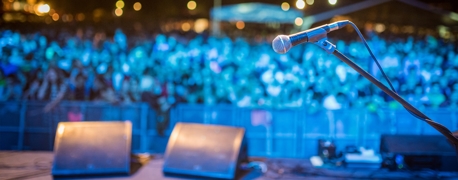Medical Emergencies at Concerts & Who’s Responsible for Keeping Fans Safe

A medical emergency can happen anywhere. When it happens at a concert or other live event that lacks the resources and personnel to protect fans’ well-being, the results can be disastrous. That’s what happened at the 2021 Astroworld Festival in Houston, Texas on November 5, 2021. Hundreds of fans were injured and 10 ultimately lost their lives when a crowd surge occurred and there were not enough security measures or medical resources to prevent or address the disaster.
Event planners and organizers should ensure the health and safety of attendees by:
- Hiring enough event medics to administer first aid and other care as needed.
- Making sure medical personnel are properly trained and licensed.
- Having a workable plan in place to handle any medical emergencies that arise.
- Ensuring medical tents or stations are clearly marked and easy to find.
- Marking medical stations on the event map for emergency personnel and attendees.
- Providing enough medical supplies and equipment for the venue.
- Anticipating potential medical emergencies, such as heat stroke at an outdoor event.
- Coordinating with proper authorities to get additional help and resources, as needed.
In this article, we will discuss medical requirements at festivals, concerts, and sporting events, and what role organizers and other responsible parties have in giving attendees access to the medical care they need.
Medical Requirements for Concerts, Music Festivals & Sporting Events
Any live event, from an intimate 300-person show at a nightclub to a music festival with 50,000 attendees, needs to have the resources to handle medical emergencies. The scope of medical requirements will vary depending on the type of event and the number of attendees, plus the jurisdiction. If a venue or event has a history of medical emergencies, additional resources should be allocated.
Different levels of medical services may be required at live events:
- First Aid Station: This is the most basic option and would include one or more stations staffed by people who are trained in first aid and CPR. The station should also include basic medical and first aid supplies.
- First Aid Station with Nurse: This option would include the requirements of a basic first aid station as well as the presence of a registered nurse whose abilities would include airway management, using a defibrillator, administering fluids, and the like.
- First Aid Station with Physician: This would include one or more stations staffed not only by people trained in CPR and first aid but also by licensed physicians.
- Life Support Ambulance: Some events must have a Basic Life Support (BLS) ambulance on site, which would be equipped to provide basic medical monitoring and support, plus transportation to local hospitals or medical facilities as needed.
There are also security requirements that event organizers and venues must follow.
Types of Medical Emergencies at Concerts
The medical emergencies at a concert may vary from something like an insect bite to a heart attack. Medical personnel must be properly trained and ready to handle any emergency that comes their way. They must have a workable communication system in place, typically via walkie-talkie, to get emergency help. There must be enough medical tents or stations to treat incoming patients.
The following are examples of medical emergencies that concert organizers should be prepared to handle:
- Eye injuries
- Head trauma
- Heat exhaustion
- Heatstroke
- Dehydration
- Headaches
- Insect bites
- Diabetes
- Heart attack
- Stroke
- High or low blood pressure
- Drug overdoses
- Broken bones
- Respiratory distress
- Obstetric issues
- Seizures
If organizers and promoters are ill-prepared for any of these medical emergencies, fans may be at risk of suffering serious harm. They may even lose their lives.
Lack of Medical Resources Can Make Concerts Deadly
When a concert does not have enough medical resources, fans will not be able to get the help they need. This can have tragic results. This can come from a lack of proper planning, such as failing to anticipate the number of stations needed based on the size of the crowd or venue. Organizers should comply with city and county regulations related to medical resources for live events, and they should also use common sense in determining what a venue may need. This can be based on everything from the weather to the general age range of the crowd.
The following situations can make a concert or other live event deadly:
- Fans cannot find medical stations or personnel.
- Event medics are not properly trained or licensed.
- Medical stations do not have enough supplies.
- There are not enough medical stations for the size of the crowd/venue.
- Event organizers do not properly anticipate medical problems.
- Medics are performing CPR incorrectly or on people who do not need it.
Talk to a Concert Injury Lawyer at Our Firm
If you were at a concert and had trouble getting the medical help you needed, our attorneys want to hear your story. Our concert injury attorneys believe in fighting for fans and families who have suffered harm because event organizers, venues, and medics did not anticipate problems or provide the right care. You should not have to fear for your health and safety at a concert or music festival. You should be able to get medical help if you need it, and the medic you see should be properly trained and have the supplies to assist you.
At Arnold & Itkin, we have represented people who have experienced the worst injuries and losses, holding big corporations accountable for failing to put safety first. Our lawyers have won over $20 billion for our clients, helping them get the support and care they need to rebuild their futures.
To find out more about medical emergencies at concerts and who’s responsible for providing treatment and care, call (888) 493-1629. Your consultation is free and private, and if we take your case, you pay nothing upfront and no legal fees unless we win your case.


